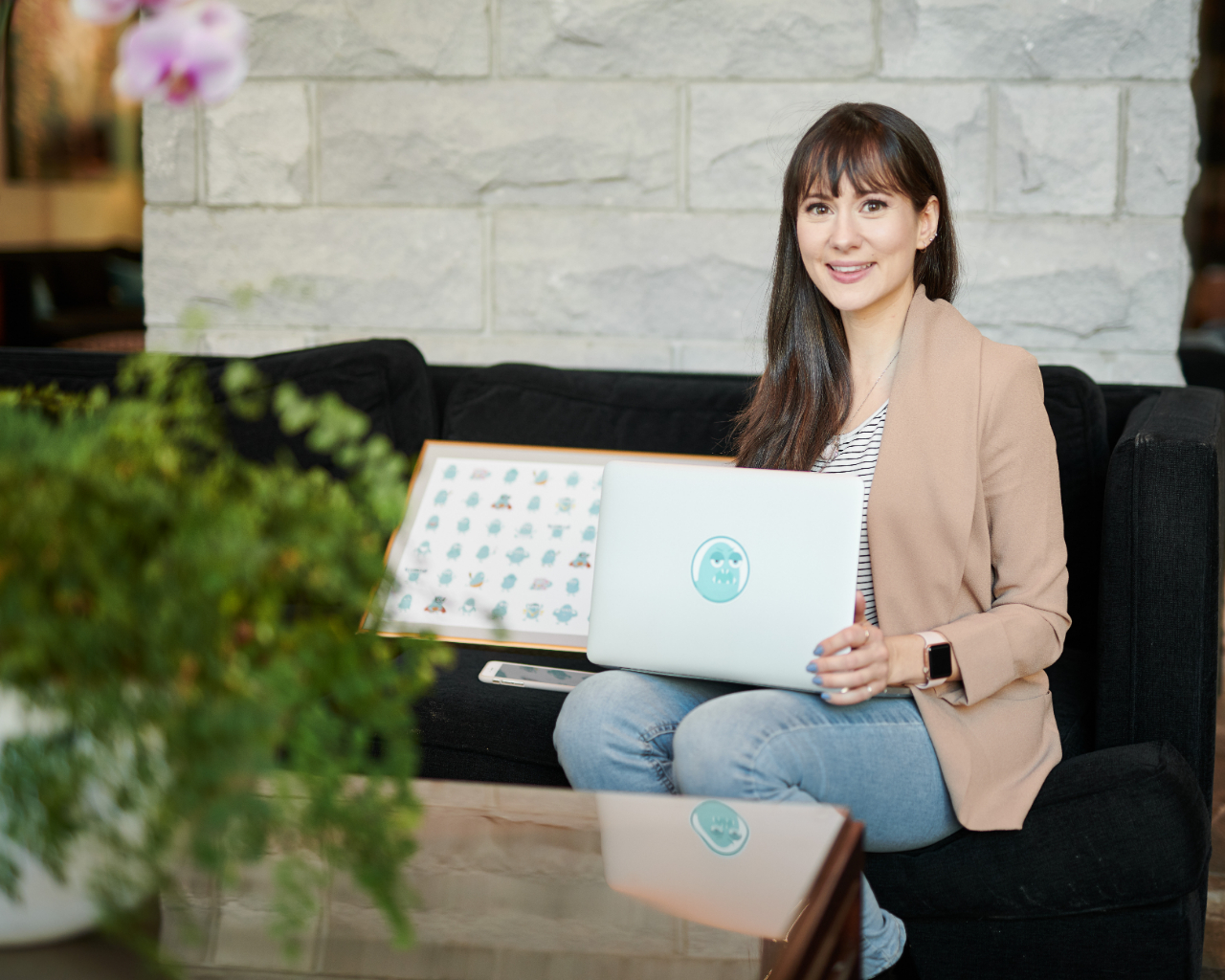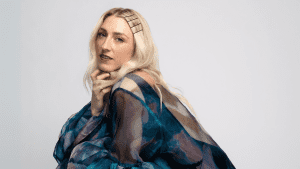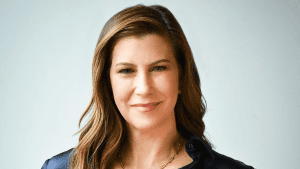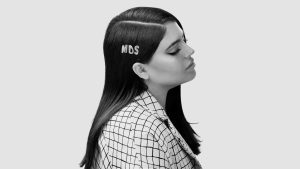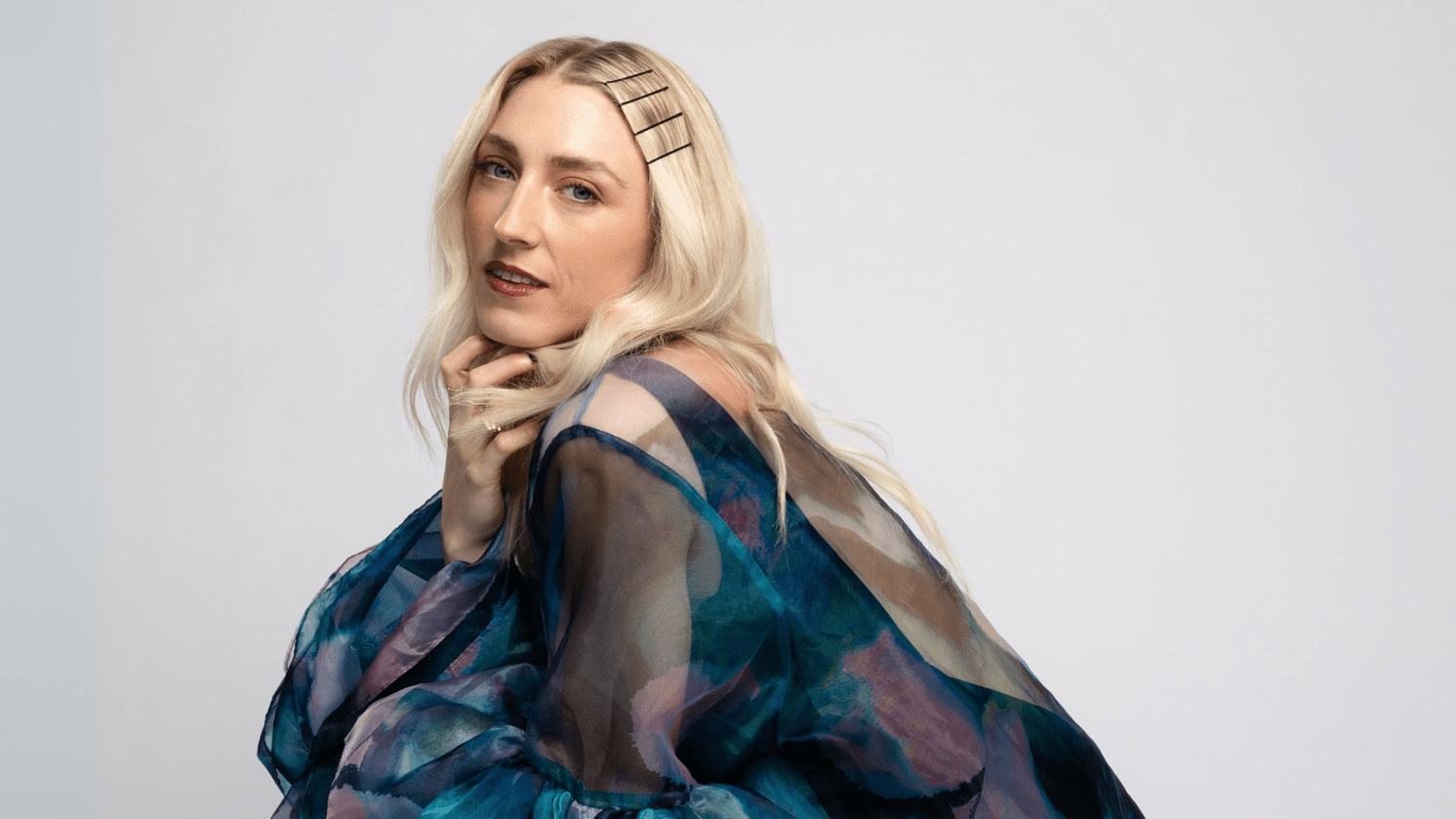[vc_row][vc_column][vc_separator color=”peacoc”][/vc_column][/vc_row][vc_row][vc_column][vc_column_text]There are many moments in a person’s life that on reflection can be defined as transformative. For Ania Wysocka, it came as a quick intense rush in the form of a panic attack.
Without warning during her final year of University, Wysocka was far from home and had no access to a family doctor. In that moment of panic all she could do was look for some form of relief. “My first instinct was to reach for my phone to find a resource that could help me process what was happening,” says Wysocka, “but there were no such apps available at the time, and other resources were less accessible, or too expensive.”
This story mirrors that of many Canadians who struggle with anxiety and panic disorders daily. The Canadian Mental Health Association defines a panic disorder as, “a type of anxiety disorder that causes repeated, unexpected attacks of intense fear, along with fear of having more attacks.”
A study of 1,500 Canadians revealed that 40 percent of those surveyed identified themselves as someone who struggles with anxiety. Unfortunately for the millions of people in Canada that suffer, there isn’t always accessible help. It was this stark reality that inspired Wysocka to create the panic attack and anxiety management app Rootd. [/vc_column_text][vc_single_image image=”17342″ img_size=”full”][vc_separator color=”turquoise”][vc_column_text]“Months of struggling, research, and reading later I realized I could combine what I learned with my design skills, the expertise of mental health professionals, and my passion for entrepreneurship,” says Wysocka, “this is how Rootd came to be.”
Different from a number of other mental wellness apps, Rootd offers in the moment counselling modules, with short term and long term lessons, educating users on understanding their disorders as a means to promote better management. Rootd provides handheld therapy to anyone who needs it.
For Wysocka Rootd has always been about more than creating a lucrative business. It is rather a way to ensure no one will ever have to question where they can access mental health support.
Rootd is now helping over 280,000 people worldwide cope and manage with overwhelming feelings of anxiety and panic attacks. As society continues to try to find the best way to manage during the unprecedented coronavirus, Rootd has given access to it’s premium features at no cost throughout the pandemic.
For the latest addition to Bay Street Bull’s Women Who Lead series, we spoke with Ania Wysocka about her passion for mental health awareness and the moments that molded her into one of Canada’s leading entrepreneurs. [/vc_column_text][vc_text_separator title=”Q & A ” color=”turquoise”][/vc_column][/vc_row][vc_row][vc_column][vc_column_text]As a female lead company, what qualities do you and your team instill that you believe set your company apart from other mental wellness apps?
Rootd’s core values are to provide accessible, non-discriminatory, in-the-moment panic help for all, no matter a person’s circumstances. This means that we want the product to work well, the content to be great, and, while we want to create a thriving and lasting business, we are still happy to provide a lot of what we do free of charge when there is a need. These values are easy to follow considering the frequent and heartfelt thanks we receive from users.
Things that help Rootd stand out include its design, approachability, and accessibility. My goal with Rootd’s lessons was to write them in a really approachable manner, combining humour and easy-to-read text to make a subject as intense and frightening as anxiety more personable. I’ve heard from users that the design stands out, and that they really enjoy being guided by a blue monster named Ron. He is the first thing people see when they find Rootd on the app stores, and he sets the stage for Rootd standing out right from the beginning. 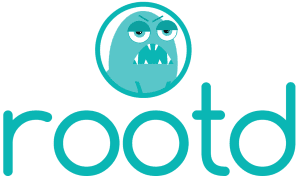

I don’t believe there is a one-size-fits-all approach to mental health, and one lovely thing about this space is that people find success using multiple resources in complement to one another. Rootd is designed to be “panic attack and anxiety relief right in your pocket” – there to support users anywhere, anytime, particularly when other important resources like their therapist are not immediately available.
COVID-19 has been an extremely trying time for millions, what do you feel is important for people to note and remember regarding managing mental health during uncertain times?
I’ll borrow from the first lesson in the Rootd app:
“Anxiety is the state of apprehension and fear experienced when anticipating a real or imagined threat, event, or situation. Though it’s probably hard to believe it now, anxiety is a completely natural and built-in human mechanism that protects us.”
The way you understand panic attacks when they first strike can have a huge impact on your healing process. Understanding anxiety and panic attacks helps remove fear and confusion and is vital to a swift recovery. The Rootd app is a great place for anyone – whether experiencing these sensations themselves or trying to support a loved one who is struggling – to start gaining this understanding (and there are many other awesome resources out there too).[/vc_column_text][vc_column_text]Mental health awareness has grown substantially within the last five to ten years. But a lot can still be done, what do you believe is needed most in the health care system when it comes to managing mental wellness?
I believe that institutions within the healthcare system need to take a chance on startups, and integrate new technology into the system.
Having a process to assess privacy and accuracy is integral to keeping everyone safe, but these processes are at times also outdated and automatically exclude a lot of new technology and tools. As a result, we have a lot of resources that are providing integral relief to many, but most people in the healthcare system that could benefit aren’t being exposed to them and won’t find these resources unless they go out looking for them themselves.
Looking at your career, is there a defining moment that changed the person you are today?
Losing my mother has undoubtedly shaped my life. She was an indescribably incredible person, and trying to live by her example and wisdom has challenged me to rise through pain, anxiety, and many aspects of being a female entrepreneur.
How do you define your success?
Putting Rootd out into the world, and receiving heartfelt, life-changing feedback from users in return. When my mom passed away, I was struggling with grief, and panic attacks overwhelmed me. My dreams and career goals seemed further and further away. At that time I decided that if I could help at least one person not need to endure what I was experiencing, the app would be a success. Now this success is realized every day.[/vc_column_text][vc_single_image image=”17343″ img_size=”full”][/vc_column][/vc_row][vc_row][vc_column][vc_column_text]How do you want Rootd to impact Canadians?
I want Rootd to impact Canadians in the same way I hope it can help individuals around the world. My goal is it to help make the topic of anxiety and panic attacks feel more approachable, and help people feel more comfortable addressing them in public. Rootd is designed to be modern and engaging, and to ultimately help reduce the stigma surrounding these and other mental health issues.
Rootd’s purpose is to help all Canadians feel that there is always a resource available they can turn to so long as they have a phone in their pocket – no matter where they are, whether they have internet connection, or whether they have money in their bank account. It would be icing on top if any Canadians discover Rootd and felt pride or inspiration that this resource was made in Canada, as it is frequently being recognized alongside major venture funded companies from the States and elsewhere.
What do you want your journey to show fellow women who lead in their industry?
One thing that comes to mind is that bootstrapping is absolutely a viable option.
Before Rootd I’d never built an app before, but what I did know was graphic design and the app’s subject matter. I was honest with others about my goals and what I was able to offer, and by being open to working with a developer early in their career instead of a large agency, I was able to self-fund the app’s first iteration. There’s a lot of debate about what constitutes being “all in”, but bootstrapping doesn’t have to lead you into debt if you start lean and are passionate about your product.
What piece of advice would you give all women in business?
During university I was fortunate to feel that I was in an environment where us students could share our opinions and have our voices heard, regardless of race, sex or demographics. After graduating, I carried my heart on my sleeve into meetings as a young female professional, and instead encountered many times seeing others being discriminated against, and feeling unempowered myself. My advice to women in business would be to be prepared to encounter these and other adversities, but also maintain the mindset of knowing that they can and will overcome them.
I would also suggest everyone make sure to check in with themselves, celebrate their wins, and take breathers every now and then. Being a founder is an awesome and unique journey but with it comes significant sacrifice. It can be hard and rewardless work (especially at first), and it’s easy to feel isolated and caught up in a lot of pressure. So be sure to give yourself a break every once in a while to note how far you’ve come. Mind that you don’t burn out before you get to where you want to be. [/vc_column_text][/vc_column][/vc_row]


